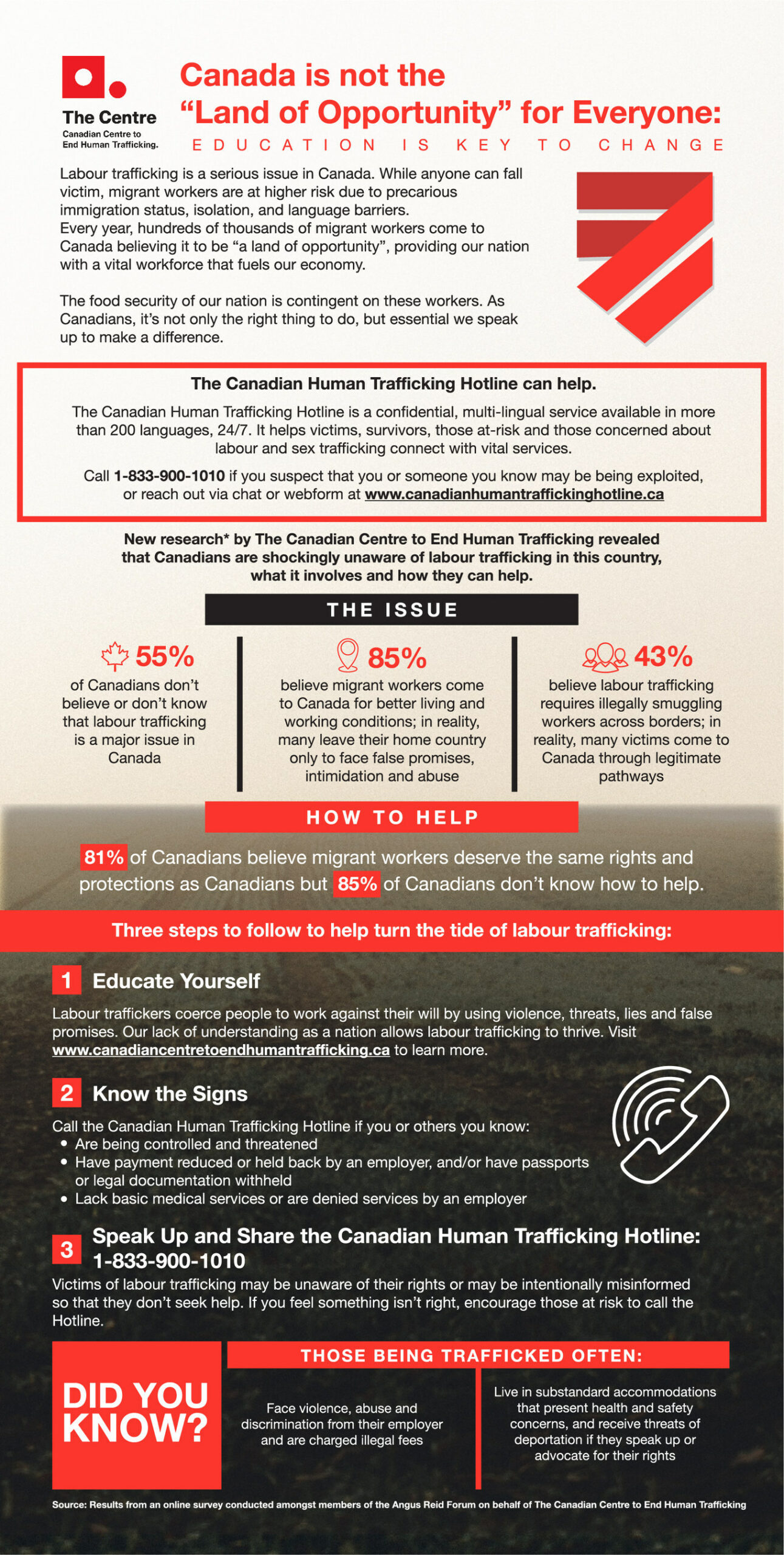
Research reveals labour trafficking numbers in Canada
by CM Staff
While anyone can be a victim of labour trafficking, migrant workers are at higher risk due to precarious immigration status, isolation, and language barriers.

Canada is not the “Land of Opportunity” for Everyone – The Canadian Centre to End Human Trafficking (CNW Group/The Canadian Centre to End Human Trafficking)
TORONTO — The Canadian Centre To End Human Trafficking says that eighty-five per cent of Canadians believe migrant workers come to Canada for better living and working conditions*, however in reality, many leave their home country only to face false promises, intimidation, and abuse.
Labour trafficking is a serious issue in Canada, the group says. While anyone can be a victim of labour trafficking, migrant workers are at higher risk due to precarious immigration status, isolation, and language barriers. New research by The Canadian Centre To End Human Trafficking (The Centre) – a national charitable organization dedicated to ending human trafficking – reveals that despite the pervasiveness of labour trafficking, more than half of Canadians (55 per cent) either don’t believe or don’t know that it is a major issue in Canada. This lack of knowledge exacerbates the problem.
“Trafficked persons are lured to Canada with promises of good-paying jobs, and access to opportunities for themselves and their families. However when they arrive here, they are forced to work long hours under unsafe and very poor working conditions for little or no money,” explains Julia Drydyk, Executive Director, The Canadian Centre to End Human Trafficking. “These workers often don’t realize they have rights. Many feel threatened and isolated, so they do as they are told. We know Canadians want to help – 93 per cent of Canadians support the fair treatment of migrant workers – but we also know that 85 per cent don’t know how to make a difference. Being able to identify labour trafficking is the first essential step to stopping it.”
This National Human Trafficking Awareness Day (February 22), The Centre is informing Canadians about the issue of labour trafficking and announcing an upcoming educational campaign aimed at migrant workers. Launching in April when seasonal work begins, the multi-faceted campaign will help migrant workers understand their rights and raise awareness of The Centre’s Canadian Human Trafficking Hotline.